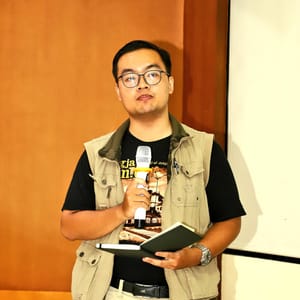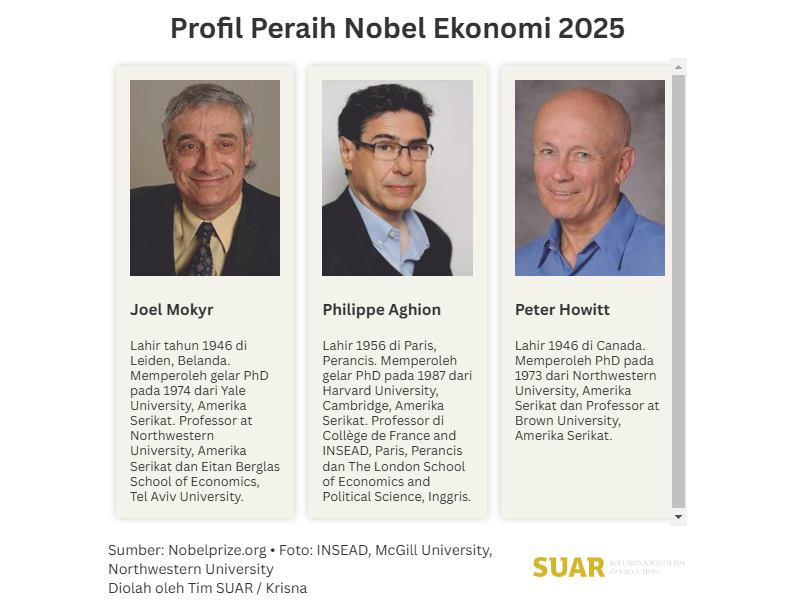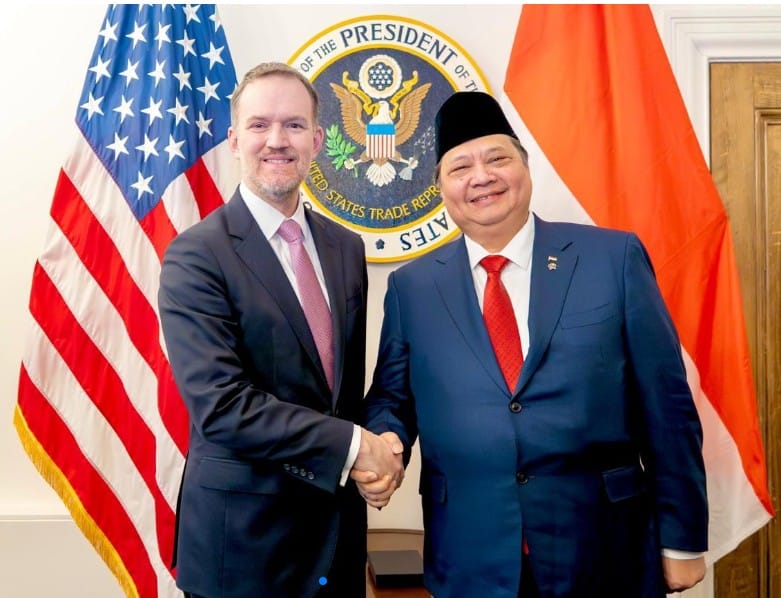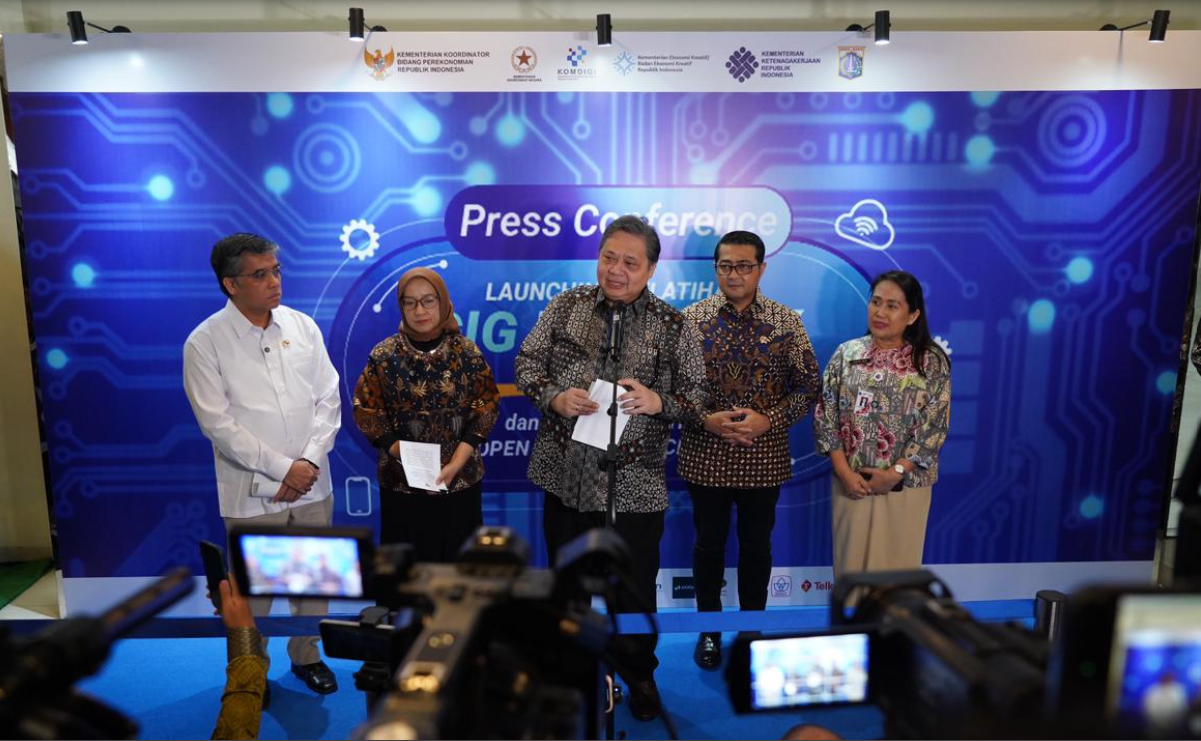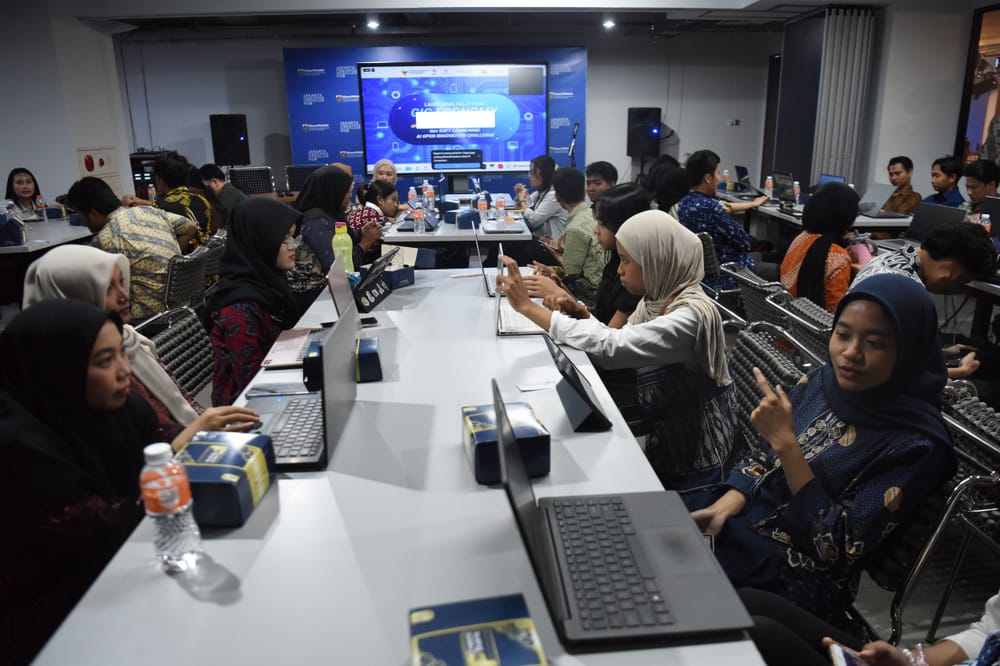The role of innovation and the mechanism of "creative destruction" on economic growth is the common thread of the 2025 Nobel Prize in Economics. For the business world, the award resonates with valuable lessons, namely that research investment and product innovation are weapons to face the inevitability of change. Are Indonesian entrepreneurs ready to do it?
From Stockholm, the Swedish Academy announced the Sveriges Riksbank Prize in Economic Sciences 2025 (or commonly called the Nobel Prize in Economics) on Monday (10/13/2025) local time. The names of two professors from the United States and England, Joel Mokyr and Peter Howitt, and a professor from France, Philippe Aghion, came out as recipients of the prestigious award that has been awarded every year since 1968.
In its written statement, the Swedish Academy chose Mokyr for the contribution of his scientific works that use historical sources to reveal the origins of sustainable economic growth as a new normality since the industrial revolution began.
"Mokyr clearly demonstrates that, with continuous innovation, we not only know that something works, but also know why something works. He also emphasizes the importance of society being open to new ideas that allow change to happen," wrote the Economic Committee of the Swedish Academy, chaired by Professor of International Economics at Stockholm University, John Hassler.
Read also:
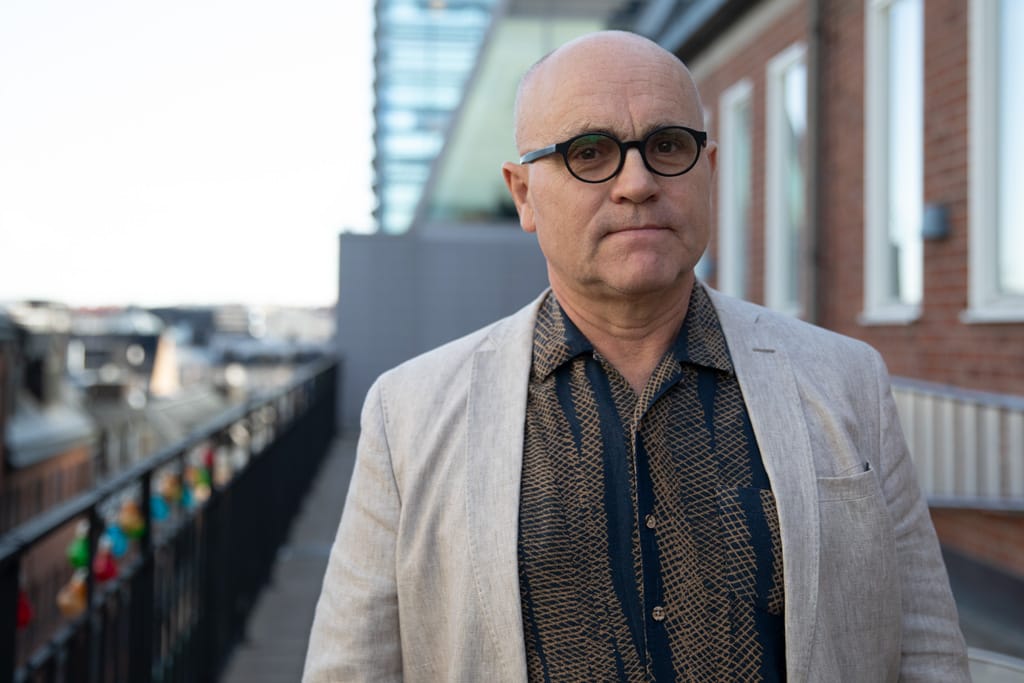
Meanwhile, the Swedish Academy also chose Aghion and Howitt as winners for their contribution in formulating a mathematical model that explains the mechanism of "creative destruction" in the article "A Model of Growth Through Creative Destruction" published in the journal Econometrica, Vol. 60, No. 2 (1992).
Aghion and Howitt describe "creative destruction" as occurring when new, better and more innovative products will defeat companies that survive with old products. Innovation represents novelty and creativity, but at the same time is also destructive and destroys old products naturally.
"In their own way, the winners have shown that 'creative destruction' creates conflicts that must be managed constructively. Otherwise, large companies with vested interests and groups threatened with harm can block innovation that will be born," the statement concluded.
Create a comprehensive ecosystem
Including innovation as an important point in business practice is a necessity for the business world. However, in the Indonesian context, there is still homework to fix the business ecosystem and innovation ecosystem as a prerequisite for industrial innovation to run as expected, even though it takes a long time.
The Chairperson of the Indonesian Employers' Association (Apindo) and CEO of Sintesa Group, Shinta W. Kamdani, stated that industrial innovation requires a supporting ecosystem that is holistic, dynamic, open and collaborative. Efforts to improve the business ecosystem and innovation ecosystem simultaneously are needed to encourage industry to innovate.
Shinta explained that there are at least three important aspects in fixing this ecosystem, namely human resources, the business climate created by the government, and market absorption. In the first aspect, it is not only the quality of HR output that needs to be discussed, but also the quality of the education system that prepares the HR.
"For example, the extent to which the education system provides incentives for R&D activities that sell commercially or R&D funding support in the education sector. In this case, pentahelix cooperation needs to be carried out so that this prerequisite can be fulfilled," said Shinta when contacted by SUAR, Tuesday (10/14/2025).
In the second aspect, the efficiency of the cost of doing business, the openness of regulations to products/services that have never existed before, to the protection of intellectual property rights against piracy and counterfeiting of innovative products are key to encouraging industry to innovate.
"Business actors will only carry out R&D if the output results in a good return on investment commercially. The government needs to create a regulatory climate that is not only efficient, but also open to innovation collaboration and firmly supports healthy business competition," she said.
The effectiveness of an innovative product will only be tested if it is received responsively by the market. For this reason, the purchasing power of the community, especially the middle class which is increasing gradually and stably in terms of both the number and nominal purchasing power, is an absolute requirement. This means that high demand will inevitably create a competitive market in terms of product innovation.
"Don't think that the existence of R&D incentives or human resource development incentives will automatically drive industrial innovation. Incentives do help businesses, but they are only a small part of what is needed to carry out business innovation sustainably," Shinta concluded.
Sharing Shinta's views, President Director of Sahid Jaya International Hariyadi Sukamdani believes that innovation is a necessity for any business, even those that only sell basic products like mineral water. However, most entrepreneurs still do not prioritize innovation.
"I see a tendency for entrepreneurs in Indonesia to buy ready-made innovation products rather than innovate by conducting their own research until they get a patent. The reason is that, in addition to having to provide trial and error costs, the time it takes to enter the commercial stage cannot be ascertained," Hariyadi said when contacted, Tuesday (10/14/2025).
So far, according to Hariyadi, a potential product that can be developed through research and innovation investment is palm oil derivative products to increase added value that is higher than just exporting CPO. In addition to institutional support, the Palm Oil Plantation Fund Management Agency (BPDP) has funds for research.
Although not prioritizing it, Hariyadi is optimistic that some entrepreneurs are starting to think about the importance of investing in research by funding or buying research produced by universities. This method can be an alternative to developing a research and development department in their own company.
"If we look at it as a whole, the amount is still small. In fact, if we look at it, investment in research has a large margin. However, entrepreneurs are less patient and choose to buy technology that is ready-made and ready to use, even though if they are serious, the added value of research products is large," he said.
Increasingly relevant
In addition to providing lessons for the business world, the 2025 Nobel Prize in Economics also has a number of implicit messages about the world today. International finance lecturer at Atma Jaya Catholic University, Agustinus Prasetyantoko, believes that although innovation as a source of economic growth has long been recognized, its relevance has become increasingly felt recently.
"Innovation is becoming relevant because the world is facing growth stagnation due to complicated geopolitics, so domestic sources of growth will no longer drive growth. In addition, the AI revolution needs to be seen with an endogenous growth perspective and the creative destruction process offered by these three 2025 Nobel laureates," Prasetyantoko explained to SUAR, Tuesday (10/14/2025).
According to Prasetyantoko, the different nationalities of the three winners also have the meaning that the Nobel Committee is reaffirming that the meaning of multilateralism cannot be rejected, even though it is currently nearing its death.
"Howitt strongly opposes Trump's policies, while Aghion suggests learning from China. Their victory represents a multilateral perspective that has been threatened recently," he said.
For Indonesia, the advantage of innovation as a driver of economic growth is an invitation for Indonesia to no longer rely on conventional natural resources such as minerals and coal, but to focus on industrial added value and improve the quality of human resources capable of "creative destruction."
"Beyond all of that, there must be solid governance, regulations and institutions so that allocations to improve the economic order and system do not evaporate and fall into the hands of corruptors," added Prasetyantoko.

